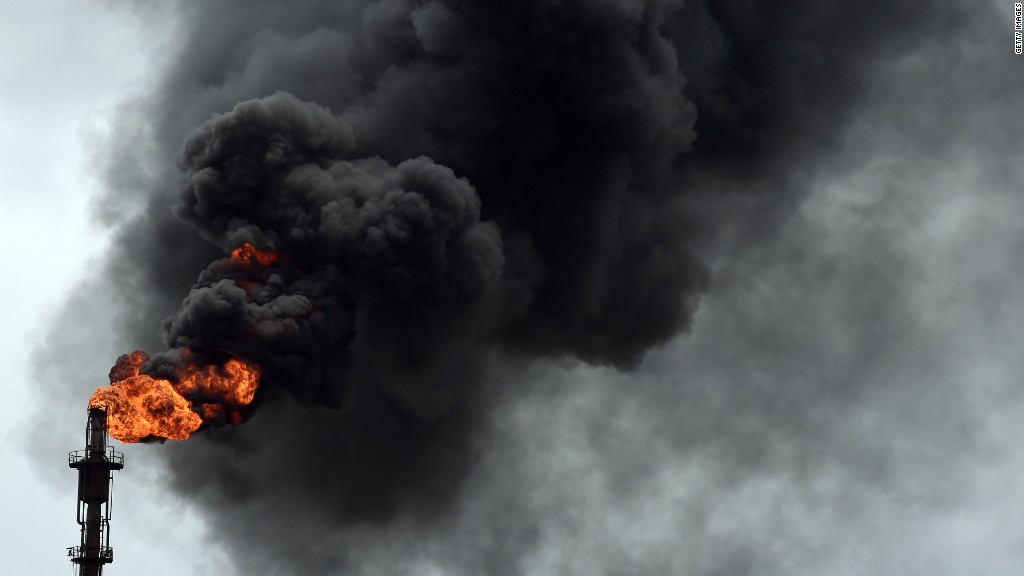
The oil market's May meltdown is getting worse.
U.S. crude prices plunged more than 3% in a matter of minutes on Friday morning in Asia, taking the price of a barrel below $45 for the first time since a landmark OPEC deal in November to slash production.
The OPEC agreement, the cartel's first cut since 2008, was supposed to prop up oil prices and end the epic glut that has roiled the industry. But after getting an initial lift from the deal, prices slipped into a downward spiral in mid-April that intensified this week.
Oil steadied later Friday, trading just 0.1% lower at around $45.47 a barrel by late morning in Europe. But it's still down more than 8% since the start of the week.
The plunge has also hit the share prices of major energy companies like ExxonMobil (XOM). Chinese oil stocks were feeling the pain in Hong Kong on Friday. Sinopec sank 2.9% and PetroChina (PCCYF) fell 2.1%.
A combination of resilient U.S. shale output and surprisingly sluggish demand for gasoline from American drivers has kept U.S. oil stockpiles at historically high levels.
Related: This Texas oilfield is messing with OPEC
The explosion in U.S. shale oil output over the past decade has reshaped the global energy landscape, vaulting America into the upper ranks of international producers.
Crashing oil prices in late 2015 and early 2016 dealt a blow to the U.S. shale industry. But shale is on the comeback trail now, aided by technological advances and leaner business models that have allowed companies to pump profitably at far lower prices than before.
"A lot of global players didn't expect U.S. production to be able to ramp up this quickly, at this price level," said Jenna Delaney, senior oil analyst at Platts Analytics.
Related: Saudi Arabia pushes through pain of breaking oil habit
That rebound has overshadowed efforts by OPEC and non-OPEC members like Russia to support the oil market.
Silencing critics who predicted OPEC would cheat its own quotas, the cartel has shown considerable restraint this time around by overwhelmingly complying with its supply cut agreement.
But that has been offset by more pumping from Libya and Nigeria, two nations exempt from the OPEC deal. Production there has been stronger than expected.
Related: Nigeria's economy was a 'disaster' in 2016
Another driver for the weakness in the oil markets has been a disappointing appetite for gasoline in the U.S.
Recent U.S. gasoline demand, a closely watched metric, is down by nearly one quarter of a million barrels per day from last year.
All of this adds to the pressure on OPEC, which is meeting on May 25 in Vienna. Support is building within OPEC to extend its oil production cuts by an additional three or six months, senior Gulf officials previously told CNNMoney.
"Now it seems as though that extension will have to move into 2018 as well," said Vincent Piazza, a senior analyst at Bloomberg Intelligence.


